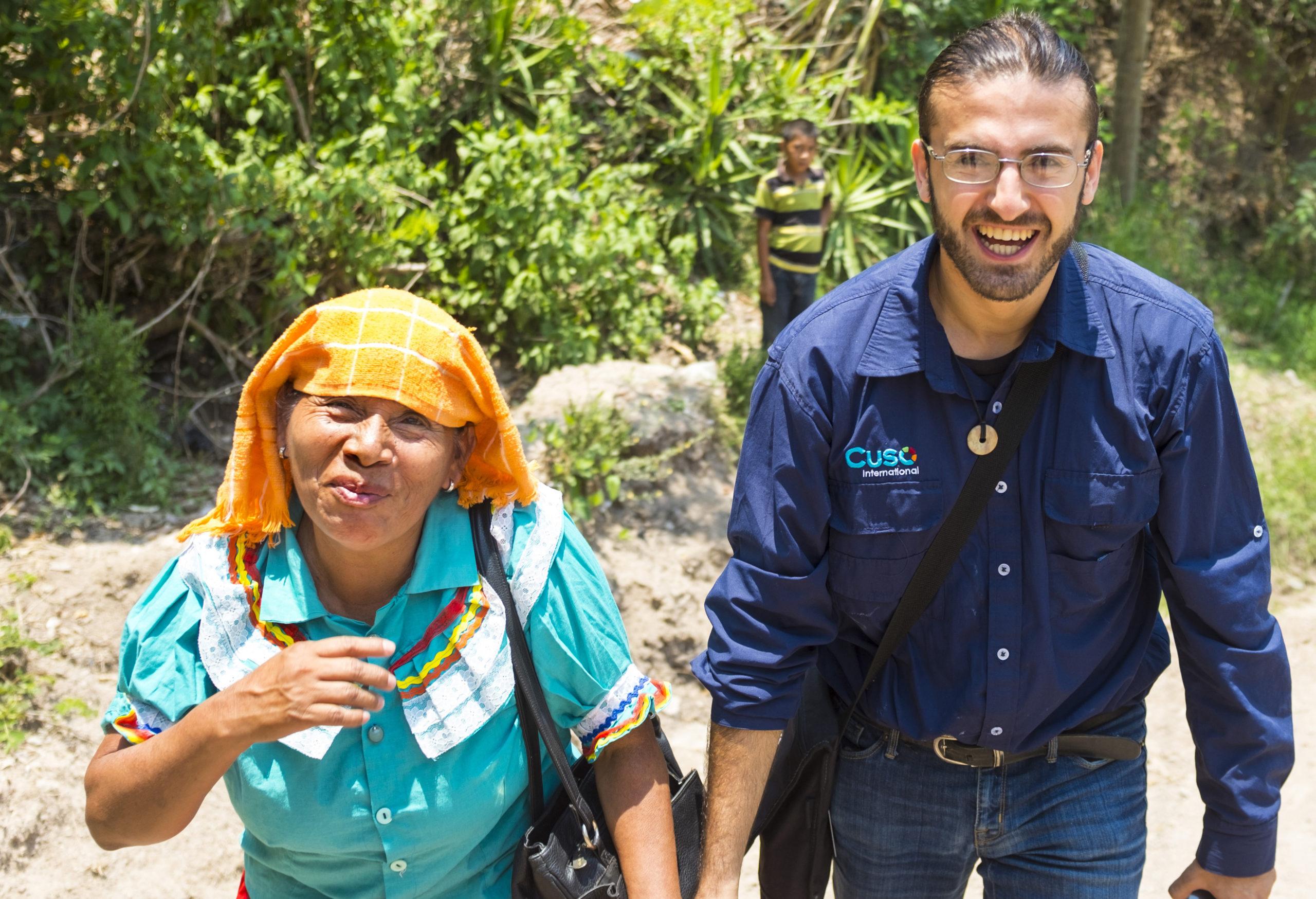Working Alongside Honduran Indigenous Communities to Support Women’s Rights
Story

Daniel Bagheri Sarvestani, from Caledon, Ontario, is an Indigenous peoples’ rights advocate who has been volunteering for more than a year with Cuso International’s partner OCDIH (Organismo Cristiano de Desarrollo Integral de Honduras or Christian Integrated Development Organization of Honduras).
“The opportunity to work with the Mayan nation in Copan is a rare opportunity that not many have,” he said. “My work with the Indigenous nations for the past five years makes this experience especially suited to my life goal to advocate for human rights and Indigenous peoples’ rights.”
Daniel began his volunteer placement doing research and developing strategic plans on how to support the community over the next five to 10 years. The plan focuses on key themes including Indigenous peoples right to land, education, politics of discrimination and access to health care. Promoting Indigenous rights and culture, along with Indigenous women’s rights, are paramount to the work he is doing.
“Women’s rights go hand in hand with Indigenous rights,” said Daniel. “By way of working with women in the community, we are helping them to honour the traditional wisdom passed down through the communities.”
When communities gather for special events, some of the women, belonging to the Maya Chorti nation, are invited to perform ceremonies invoking the name of the creator and the ancestors to assist in the tasks ahead.
In the shadow of the ancient Honduran Mayan temples, around 60 people gather to watch four priestesses—or medicine healers as they are sometimes referred to as—arrive. Dressed in traditional cloth coloured red, blue, yellow and green, they outline a sacred circle on the ground, complete with four cardinal points and a fire pit at the centre. The simple act signifies world, unity, and peace for the common good for all nations.
“Medicine women had integral knowledge of nature and the environment; they knew what to use to heal. Even today, they have this wisdom,” he said. “For me, as a way to honour their wisdom and establish my relationships with the communities, I invite them to lead ceremonies, give lectures and coordinate activities. I try to make sure there is a bridge for understanding.”
Among the other projects he is working on includes one addressing domestic violence against women, funded by the European Union to be implemented by OCDIH. Through the program, EuroJusticia, approximately 600 people will be reached in some 50 to 80 Indigenous communities. Approximately 60 per cent of the women expected to be supported by this program are Indigenous. Through the project, women have been given a safe space to meet and share their experiences; topics most often covered include domestic violence and abuse and having no where to turn for support.
“Indigenous women tend to be victims of violence and are disproportionately affected by it. Not only is there is there a systemic lack of access to justice for indigenous communities, there are often no safe spaces for women to openly discuss their experiences,” said Daniel. “A culture of machismo in rural communities means that women gathering and organizing to speak out against injustice is frowned upon.”
Another way that Cuso International and OCDIH are supporting Indigenous women is through establishing microenterprises to help women sell the products they make, such as: natural medicine products, decorative dolls, baked goods, traditional pottery and handwoven textiles.
The microenterprises are run like co-operatives and managed by many of the women in the community. They share a communal work space called jardín de mujeres—garden of women. Each woman and their families have their own corner in the shop and their products.
“As women are often deprived from their right to work on the land, the microempresas are often one of the few sources of income the women use, so they offer important source of income for the women,” said Daniel. “Many of the women are single mothers and this is an important source of income to help sustain their kids and afford their schooling costs.”
For Daniel, the impact of his volunteer placement has been profound. “If anything, I have become even more determined to advocate for fundamental human rights and for the poor and the oppressed,” he said. “My work with the Mayan nation has deepened my insight into the struggles of Indigenous nations in Central America and opened my eyes to the realities of systematic political and economic repression and their affects on everyday individuals.”